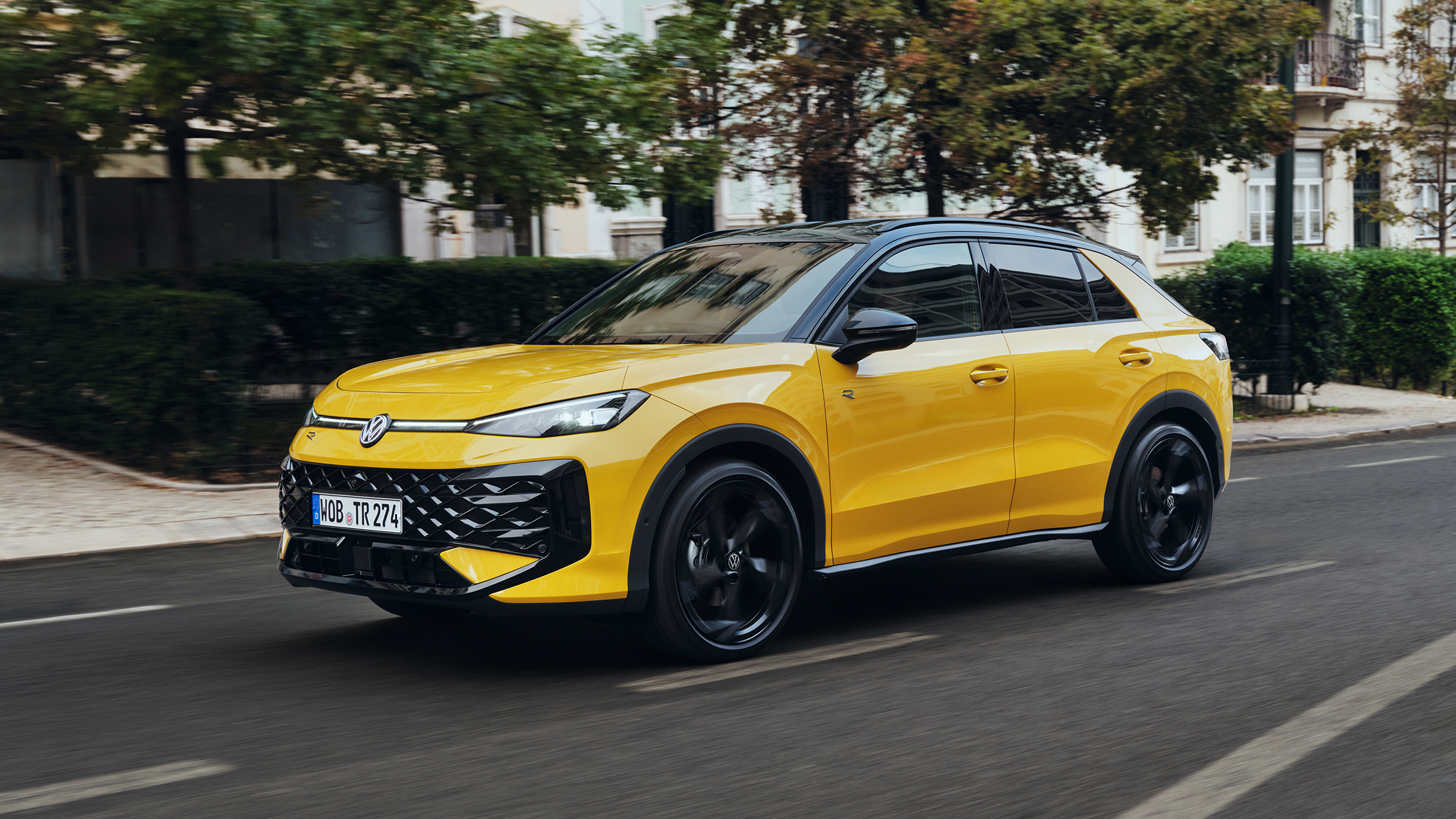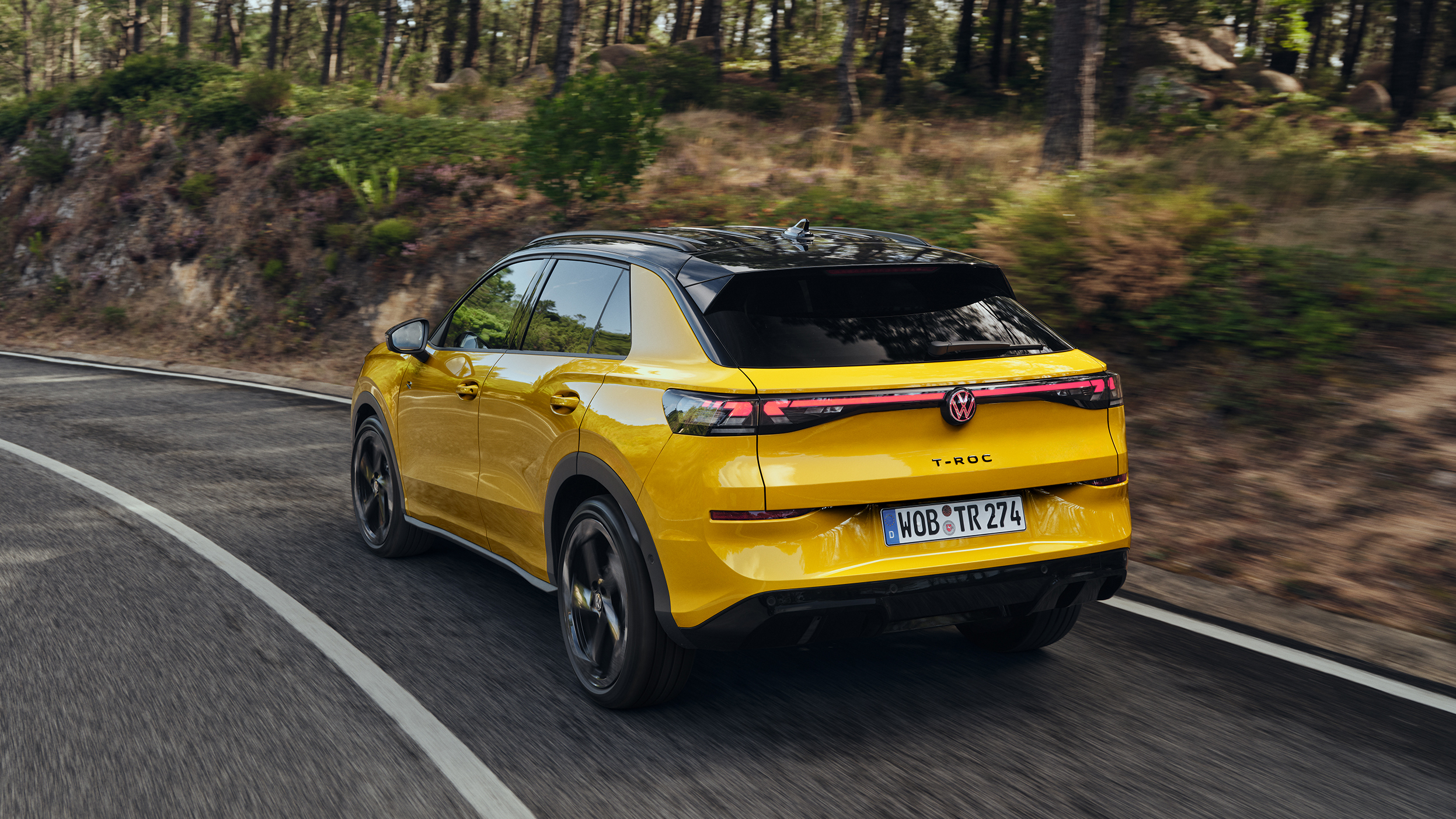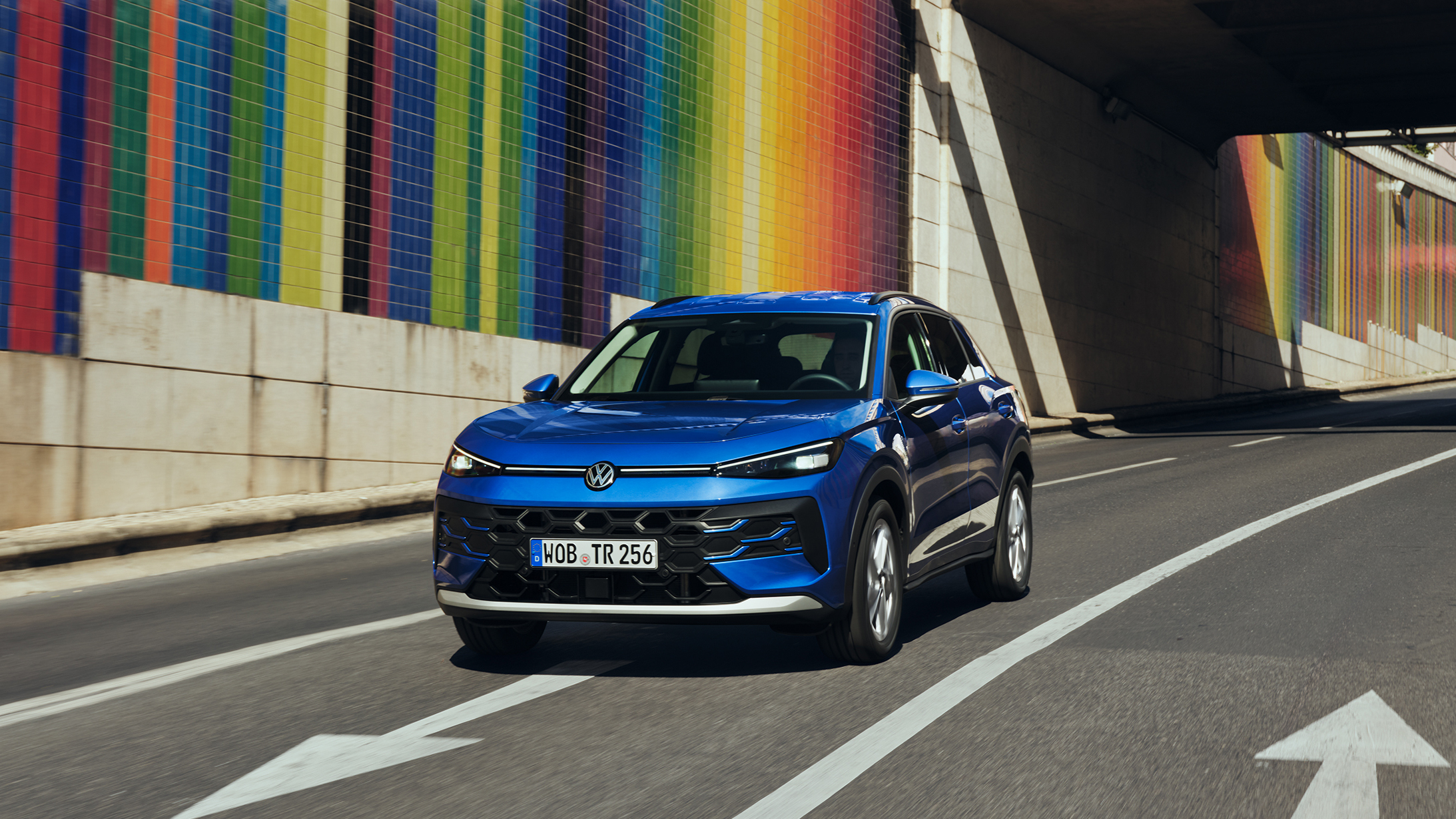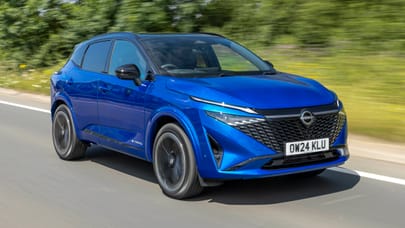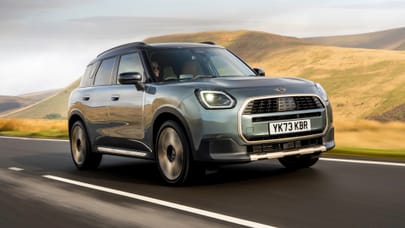
Good stuff
Funky looks yet roomy interior. Common sense back (at last!) in the cabin
Bad stuff
Arguably needs to do more to stand out in such an over-saturated class
Overview
What is it?
A Volkswagen money-printer. When VW replaced the sleek Scirocco coupe after only one measly generation with the first T-Roc, we were dismayed at yet another family hatchback wearing SUV cosplay pretending it was sort kind of young-at-heart style shockwave. And then VW went and sold a ton of ‘em.
How popular is it?
The T-Roc is Volkswagen’s third-best selling model in the UK after the Golf and the Tiguan. They shift more of these things than Polos. Even in the first half of 2025, with the car creaky, old and wrinkled, it was the fourth best-selling car in all of Europe. The people have spoken, and they love a T-Roc. Even if its myriad rivals - Audi Q2, Ford Puma, Mini Countryman, Peugeot 2008, Toyota C-HR and Volvo XC40, to name just a handful - fight it hard.
With crossover fatigue showing no signs of setting in, you could make a very strong case that in 2025 and beyond, the T-Roc is a bigger deal to VW than any of the old household names like Passat, Polo – and even Golf.
So have they gone radical and risky with the Mk2?
No. But that needn’t be a grumble. Volkswagen doesn’t have a great track record recently of getting big, bold calls correct. Touch-sensitive volume controls and subscription-paywalled horsepower, anyone?
So VW appears to have borrowed whoever designs McLaren’s supercars for the gen2 T-Roc. Only when you study it hard, ideally with an old T-Roc close by, do you notice it’s got more aggressive and confident looking. Slimmer headlights and an annoyingly bright front light-bar means the designers can make the grille bigger. Whoopee.
It looks pretty plasticky to us, especially on the toothy R-line trim. And the distinctive ringed running lights have been binned.
What about underneath?
You can now spec 20-inch rims for the first time. But you shouldn’t if you’re clever, as we’ll explain in the Driving section. The rear doors still carry the T-Roc’s trademark haunch crease, cribbed from the Bentley Bentayga. So, check your mirrors as you pootle along and you can convince yourself you’re aboard a £200,000 super-SUV.
Behind the usual backwards sharkfin pillar and a slightly more ‘coupe-ish’ roof, we find our old friend the VW full-width light bar, back for its fourteen-millionth appearance. Now joined by special guest: the light-up VW badge. To quote a wise man in a pub, what you’re driving there, is an advert.
Overall the car is 122mm longer than the old T-Roc, which translates into 30mm more rear legroom and a 30-litre bigger boot. It’s also 9mm wider and 9mm taller, but perhaps not as bloated as it could’ve been since VW has slid two smaller crossovers (the VW Taigo and VW T-Cross) below the T-Roc in the T-Hierarchy.
What about under the bonnet? Any shocks there?
Electric shocks perhaps. The T-Roc is now a hybrid-only machine. But there’s no plugging in to do – these are very mild hybrids.
At launch you have a choice of one engine with two power outputs. It’s the familiar 1.5-litre four-cylinder ‘eTSI’ unit used all over the VW Group, and in the T-Roc it develops 114bhp or 148bhp. Unless you’re regularly bombing down motorways with all seats occupied, we reckon the lesser-powered car is adequate.
It’s a mild-hybrid in the sense you won’t be whooshed along by e-power alone, but the beefy electrical architecture adds torque when you need a boost and allows the engine to switch off when coasting. It also means the stop-start system reacts with lightning reflexes, with useful real-world efficiency and refinement benefits.
Can it go off-road?
Not gracefully. There’s no ‘4Motion’ four-wheel drive at launch, but we’re promised it’ll come later, more for on-road sure-footedness than amateur mountaineering.
Both current engine versions power the front wheels through a standard seven-speed twin-clutch gearbox. One look at this car’s centre console makes it clear there was never any plan to offer a manual.
Next year, VW will add a ‘full hybrid’ to the line-up that will allow driving on electricity alone at town speeds. It’ll be followed by a 333bhp VW T-Roc R with all-wheel drive and four exhaust pipes. So the powertrain line-up will get less dull in due course…
What are the tech highlights?
Erm… there’s a knob on the centre console. Trust us, it’s more interesting than it sounds. And utterly pointless. Head over to the Interior tab for that story.
What's the verdict?
The T-Roc is a hugely popular VW, so it’s no surprise its Mk2 makeover is as radical as a supermarket sandwich selection. This car will impress people who already own T-Rocs. It looks more assertive, it’s had an uptick in interior quality and space, it’s a smidge keener to drive, it’s quieter, and if driven intelligently, quite economical too. All good stuff.
What is doesn’t do is give a compelling reason for someone in another rival crossover to immediately jump ship. This is one of the most congested battlegrounds in the entire car industry. Everyone’s got one: from Dacia to Mercedes, the Koreans, the French, the Japanese… the Chinese launched another three in the time it took you to read that.
Tell you what, though: after an era of Volkswagens which booted in hat-tricks of baffling design own-goals, and got so mean with the penny-pinching you’d have expected them to end up being hauled up in front of The Hague, it’s refreshing to be back in a stodgy but satisfying VW that’s been designed by grown-ups, for grown-ups. It’s not radical, but it deserves to carry on shifting in gargantuan numbers.
The Rivals
Trending this week
- Top Gear's Top 9
Here are nine of the coolest car nicknames




